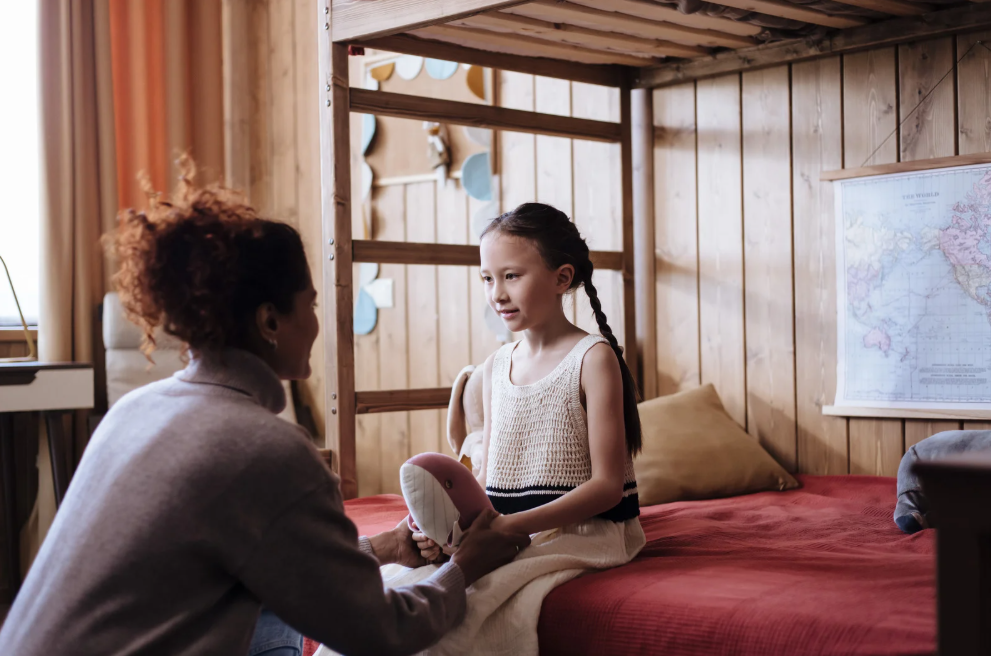Mentoring requires more than just the child’s individual effort

1:1 Mentoring is increasingly becoming a strategic choice for families seeking to support their child’s holistic development. However, for mentoring to be truly effective, the presence and involvement of parents is indispensable. An ideal mentoring relationship is not a separation between student – mentor – and parent, but rather a connected triangle, where each party plays an active role in the student’s personal growth, academic progress, and future orientation.
Parents are the first to create a trusting environment
Before a mentor can build a relationship with a student, it is the parents who open the very first door – a door of trust, openness, and active listening.

When parents introduce mentoring as a journey of companionship – rather than as a solution to “fix” their child – students are more likely to engage with their mentor in an open and collaborative spirit, rather than a defensive one. Conversely, if a student perceives the presence of a mentor as a sign that “My parents think I’m not good enough,” then no matter how skilled the mentor may be, building a genuine connection will be extremely difficult.
At this stage, the role of parents is not to stand on the sidelines waiting for results, but to be the first to plant the seed of trust – that this journey is about their child’s growth, not about responding to adult expectations.
Parents play the dual role of attentive listener and mindful observer

Throughout the mentoring process, students may undergo many changes in their thinking, behavior, and even emotions. Some changes are clearly visible – such as learning to organize their study schedule or set personal goals. Others are more subtle – like offering more thoughtful responses, taking responsibility for mistakes, or showing greater initiative in relationships.
Parents are the closest companions in a child’s daily life, and thus are best positioned to observe these changes. By listening to their child with respect (rather than rushing to judge) and sharing these observations with the mentor during regular check-ins, parents help create a complete educational ecosystem – one where everyone is aligned toward the student’s holistic development.
Parents need to take on the role of being patient and trusting
Mentoring is not like a short course where results are visible after a few sessions. It is a journey of building inner strength, mindset, and life skills – things that cannot be measured by grades or praise. Instead of focusing on weekly progress reports, parents should remain patient and trust in the quiet growth gradually taking place within their child.
Sometimes, a child opening up more to their parents, saying “I’m feeling stressed” instead of keeping it inside, or proactively suggesting a study plan – these are all important signs of progress through mentoring. Yet they can easily be overlooked if parents are only waiting for visible outcomes like scholarships or achievements.
When parents and mentors stand together on the student’s side

At Mentors14, we always emphasize that students should not feel caught between their parents and their mentor. Both sides need to stand with the student – but in different roles. The mentor serves as a mirror – a companion who reflects, unlocks potential, and offers perspective. Meanwhile, parents are the steady supporters: patiently observing, offering unconditional love, and creating space for their child to try, fail, and learn.
When students sense that alignment, they no longer worry about questions like “Am I doing what my parents expect?” or “Are my mentor and mom evaluating me?” instead, they begin to learn how to be honest with themselves, take responsibility for their own choices, and grow at their own pace – which is exactly what Mentors14 hopes to cultivate.
Mentoring cannot succeed without the role of parents. As silent observers and empathetic companions, parents are not bystanders in the mentoring journey – they are an essential part of it.
At Mentors14, we go beyond working solely with students. By supporting both the student and their family, we create a nurturing environment where each child can thrive, both in learning and in life.


 VIE
VIE